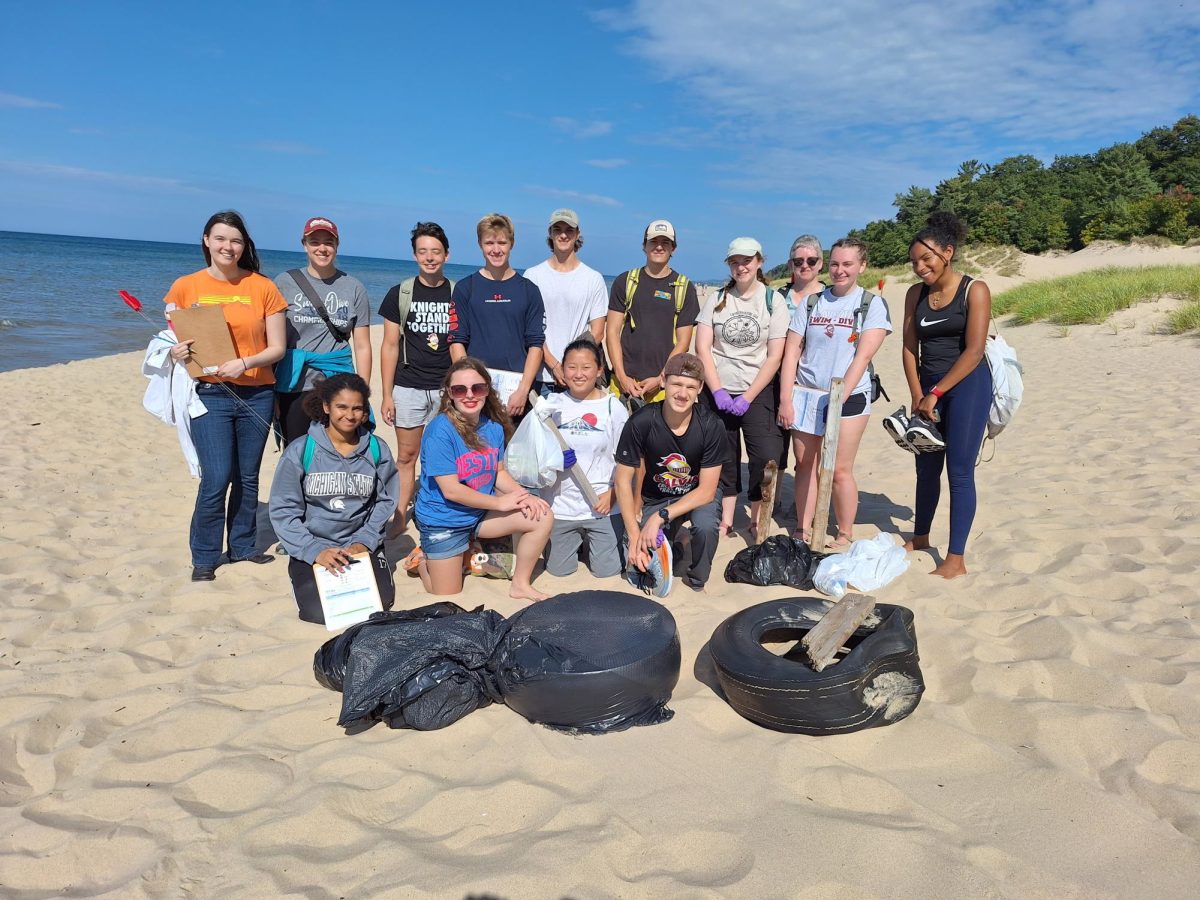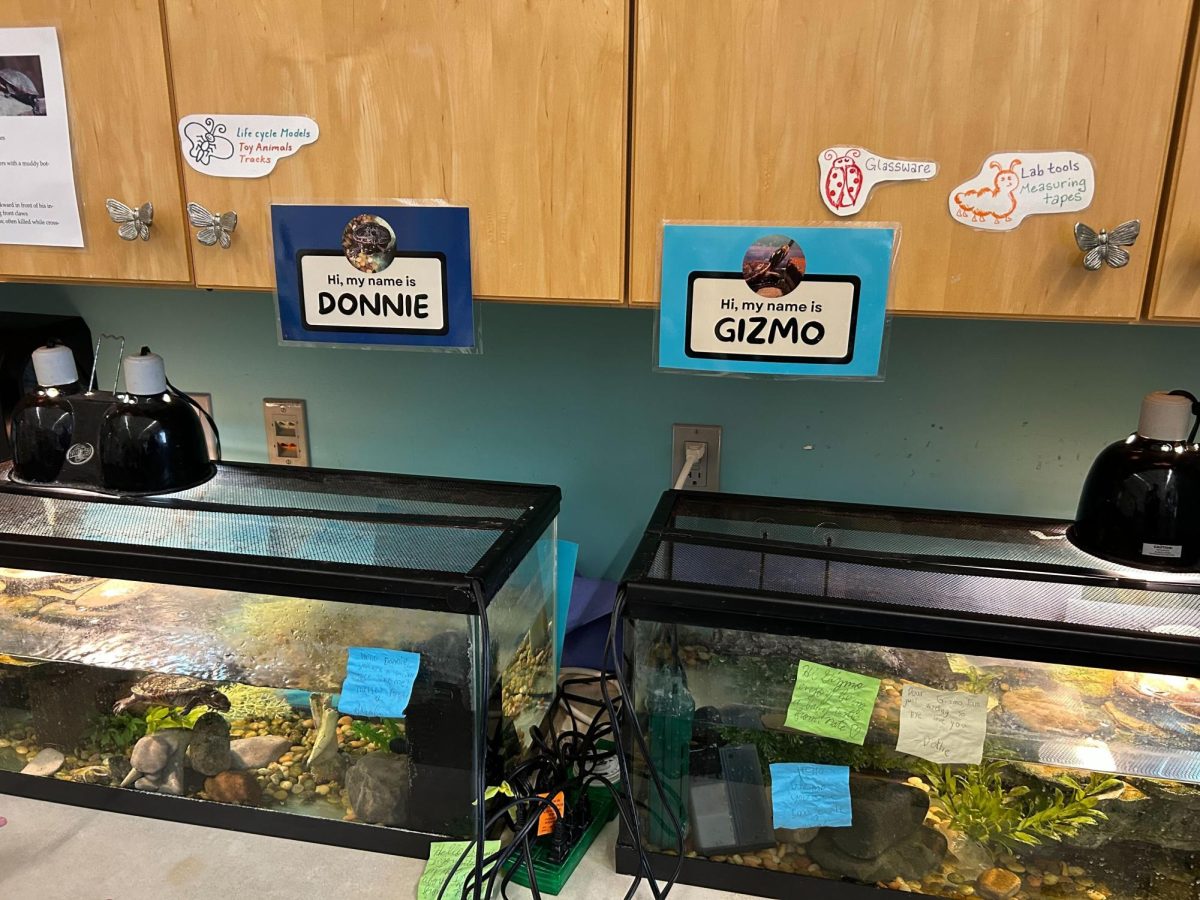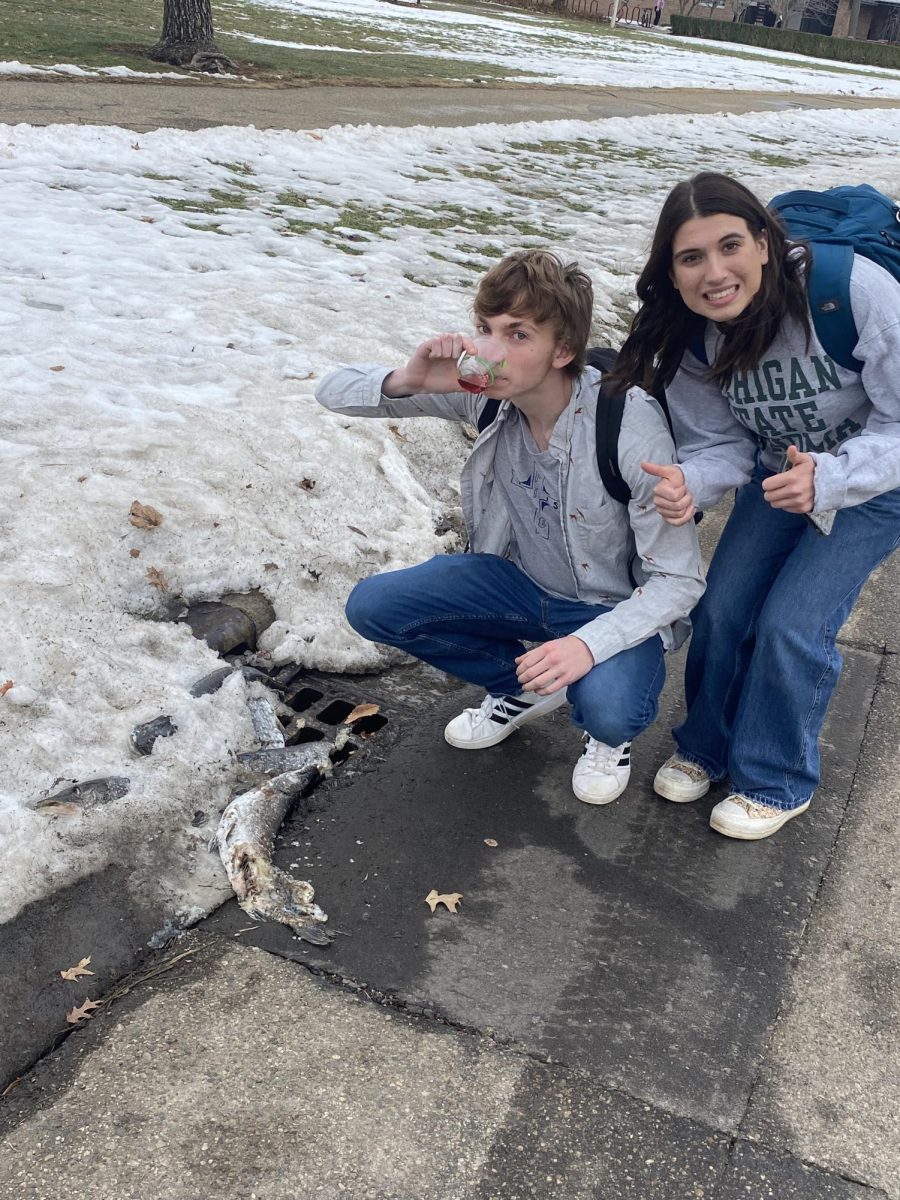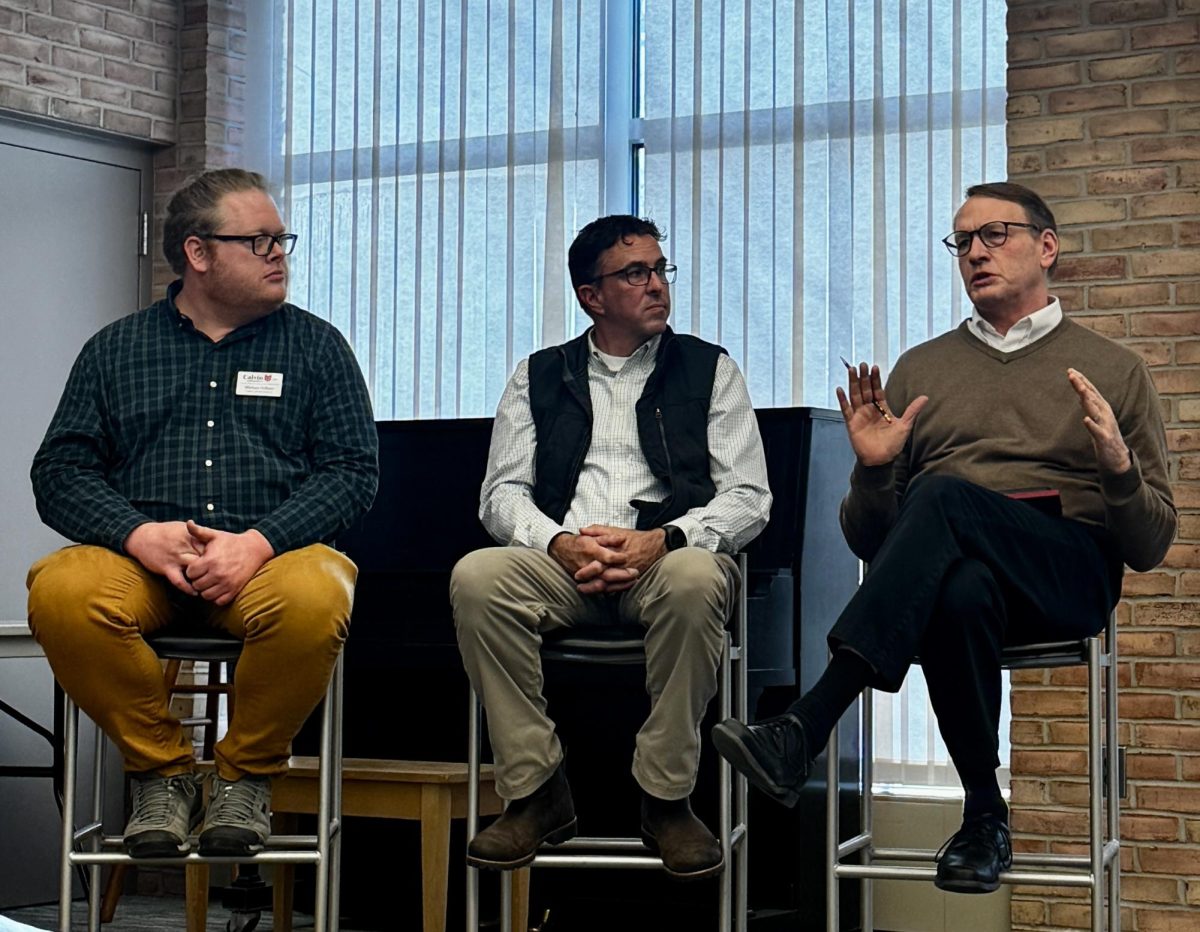On Sept. 23, 2023 students from the geology, geography and environmental studies department participated in September Adopt-A-Beach Coastal Cleanup as a part of initiatives in the department to get students involved with sustainability programs.
The cleanup took place at Hoffmaster State Park. Volunteers worked to collect garbage which included “balloons, straws, cigarettes, food wrappers, foam, bottles, hundreds of small plastic particles, tires, and treated wood,” according to Melinda Higley, professor of geology.
“Our group of 15 picked up around 125 pounds of garbage off the beach,” Ruth Diepstra, a sophomore double majoring in environmental science and psychology, told Chimes. Diepstra noted some particularly interesting finds of “two large tires, lots of construction materials, and over 1,400 pieces of plastic.”
“It was difficult to see the garbage at first because most of it was small pieces partially buried in the sand, but once we started looking we realized it was everywhere!” Higley said. Higley also expressed how sad it was to see so much garbage on the beach, calling it “a good reminder that we have agency to restore our environment.”
This year the cleanup was attended by the Coastal Geomorphology Class, FYRES (first years research in environmental science) and the Geomorphology class. “In past years this event was open to all geo classes, and we hope to make this a department-wide event yet again,” Diepstra said, with the eventual goal of inviting anyone who would like to participate, regardless of classes or departments.
Outside of the Coastal Clean Up, students are also encouraged to participate with programs like working in Calvin’s nature preserve, The Plaster Creek Stewards, and Perseverance Dune, a small, human-made dune constructed on campus in 2020 to give students a way to interact with dune formations during the pandemic. Jen Howell, the Preserve Manager told Chimes that she thought the preserve provided a “crucial link” between environmental awareness and creation care. She said that people can start understanding how this works just by walking into the preserve. “It might be the simple observation of a captivating insect or the realization that a historical pond that once supported a myriad of aquatic life has run dry, that inspires curiosity and a nudging to take an active role to care for it,” Howell told Chimes.
Students have also found the focus on sustainability to be a helpful aspect of their education. “The opportunities to put in work that directly contribute to our community, as well as gaining educational experience directly inside my major, have been very encouraging in my time here at Calvin,” Diepstra said. Diepstra explained how these opportunities have gotten her more “immersed in the material in class” by allowing her to get real world experience with concepts ”while putting my abilities towards serving the community.”
It is also possible for students to earn scholarships surrounding the idea of service learning. Diepstra holds the Stephanie L. Dykstra Memorial Scholarship, which is awarded to students “who are clearly storing up treasures in heaven through their service and friendship to people in local communities,” according to Calvin’s website.
Sustainability continues to be a focus for Calvin and the geology, geography and environmental studies department. “It is crucially important that the Calvin community fully understands the impacts we have individually and collectively on both our local and global environment,” Howell said.









